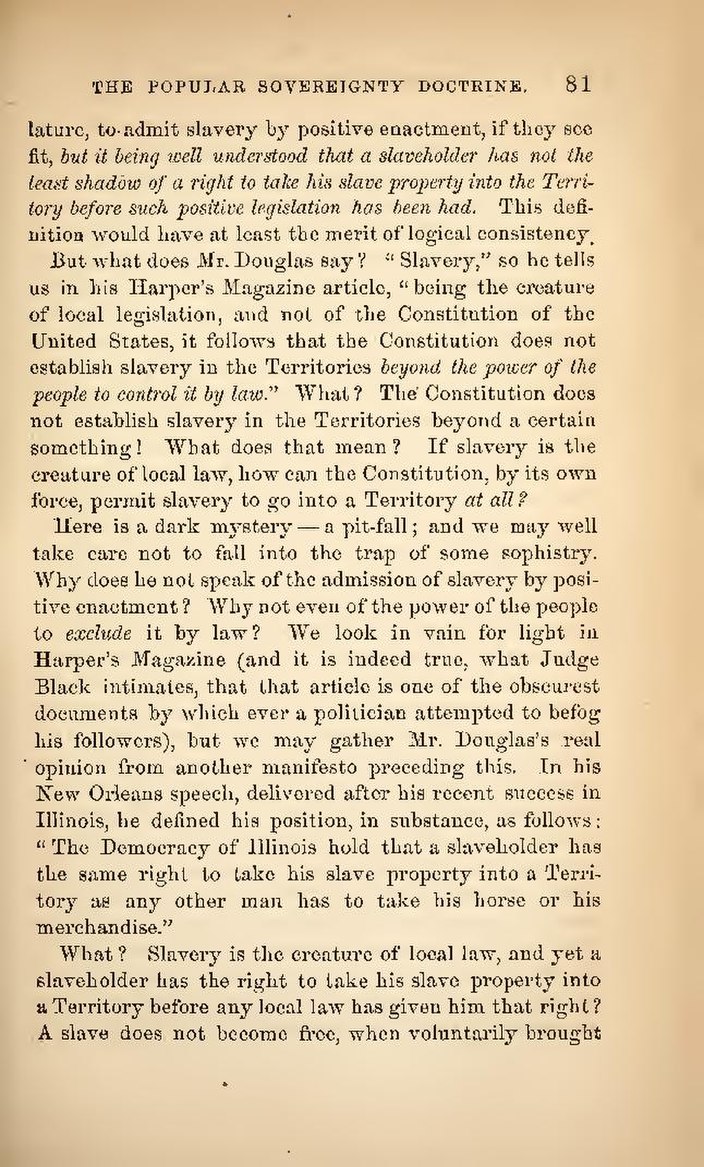lature, to admit slavery by positive enactment, if they see fit, but it being well understood that a slaveholder has not the least shadow of a right to take his slave property into the Territory before such positive legislation has been had. This definition would have at least the merit of logical consistency.
But what does Mr. Douglas say? “Slavery,” so he tells us in his Harper's Magazine article, “being the creature of local legislation and not of the Constitution of the United States, it follows that the Constitution does not establish slavery in the Territories, beyond the power of the people to control it by law.” What? The Constitution does not establish slavery in the Territories beyond a certain something! What does that mean? If slavery is the creature of local law, how can the Constitution, by its own force permit slavery to go into a Territory at all?
Here is a dark mystery—a pit-fall; and we may well take care not to fall into the trap of some sophistry. Why does he not speak of the admission of slavery by positive enactment? Why not even of the power of the people to exclude it by law? We look in vain for light in Harper's Magazine (and is it indeed true what Judge Black intimates, that the article is one of the obscurest documents by which ever a politician attempted to befog his followers) but we may gather Mr. Douglas's real opinion from another manifesto preceding this. In his New Orleans speech, delivered after his recent success in Illinois, he defined his position, in substance, as follows: “The Democracy of Illinois hold that a slaveholder has the same right to take his slave property into a Territory as any other man has to take his horse or his merchandise.”
What? Slavery is the creature of local law, and yet a slaveholder has a right to take his slave property into a Territory before any local law has given him that right? A slave does not become free, when voluntarily brought
